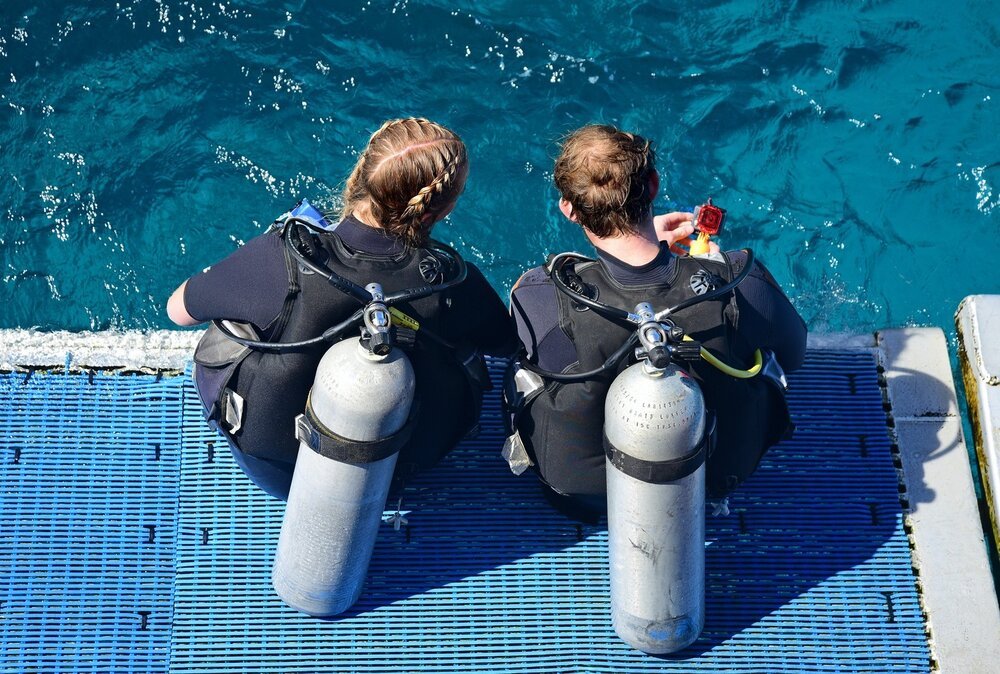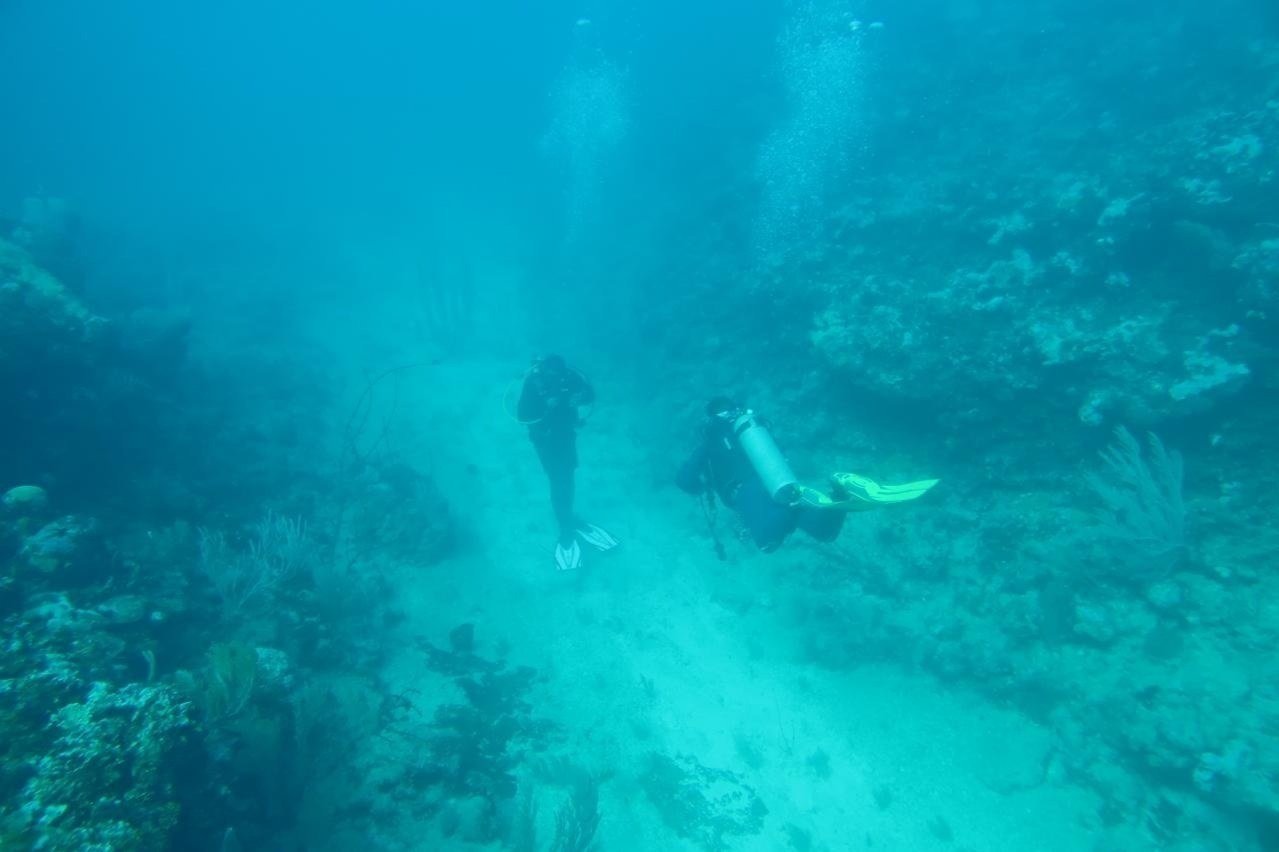
EMPOWERING YOUTH TO SAFEGUARD CORAL REEFS IN BAYAHIBE
Empowering Youth to Safeguard Coral Reefs in Bayahibe
Location: Bayahibe Beach, Dominican Republic
Grantee: The Reef-World Foundation
Nominated by: Chun T. Wright Law Firm
Year: 2023
Grant: $15,000
Goal
Rolling out Green Fins implementation in Bayahibe hand in hand with dive operators and Youth Eco Champions, in turn enhancing resilience and protection of coral reefs and their ecosystems.
Project Summary
Green Fins was first introduced in DR in 2017 through a local partnership with Reef Check Dominican Republic, successfully completing the environmental assessment and training of 20 small business dive operators, as well as establishing a team of four national assessors (2 male, 2 female) equipped to continue to deliver assessment, training, and guidance.
Now that the diving industry is slowly bouncing back from the prolonged effects of the Covid19 pandemic which brought the majority of operators to a standstill, RFW seeks to seize the momentum of building back better, growing demand for sustainable tourism options among travelers, particularly in small but fast-growing tourism destinations such as Bayahibe, where local communities’ contribution and participation risk being overlooked, and need to be actively engaged in driving the sustainability and accountability of the marine tourism industry.
Specifically, with a grant from ATCF, Reef-World seeks to support the training and assessment of 15 operators in the Bayahibe area, ensuring a dedicated focus and coherent approach to diving and snorkeling activities in this highly sought-after destination. In addition, Reef-World seeks to build on its successful Youth Eco champions pilot project delivered since 2019 (including several adaptations and adjustments during the COVID-19 pandemic) to roll out its Coral Reef Conservation curriculum to an additional 5 schools in the Bayahibe area, training a total of 65 students to become local advocates of change and sustainable tourism in their communities. This also includes imparting knowledge about ecosystem services and the return on investment of caring for and better protection of coral reefs and mangroves, including through practical activities in the local community.
How will this project support the community, culture, and landscape?
Reef-World has a track record of training 700+ diving operators to transform their business practices over the last decade, which on average demonstrates a 7% decrease in environmental impact score year-on-year, evidenced through the annual Green Fins assessment. This is done through listening to and mapping local specific needs, understanding barriers to change, and developing solutions and guidance that are adequate and appropriate locally. In addition, there is mounting anecdotal evidence of the link between operators adopting Green Fins code of conduct, and social and economic benefits for local communities This includes suggestions that the rate of customer return is increased, staff retention is improved (thus reducing recruitment/onboarding costs), more local community representatives are hired and they are paid more in relation to the average salaries provided by non-Green Fins members locally. Risk assessment is a key inherent feature of the Green Fins model, through encouraging all stakeholders to understand the short, medium, and long-term consequences of their habits and practices on the environment and ecosystems. In addition, Reef-World is committed to encouraging gender parity in all activities and avoiding program design that would reinforce harmful gender norms and stereotypes.
What are the impacts you hope to see as a result of this project?
# of operators reached including training, baseline, and follow-up assessment of their
business practices: 15
# of business owners and staff trained: 60 (3 to 5 staff per operator)
# of tourists reached through information about sustainable tourism, diving, and snorkeling practices, Green Fins accredited businesses: 15,000 (1,000 per operator on average)
# of students trained as Youth Eco Champions: 65
Additionally, based on our track record and average reduction in environmental impact seen year-on-year among business trained, we project a 10 to 15% reduction in threats to coral reefs.
How will this project combat climate change?
The Green Fins model is centered around a holistic understanding of the instrumental role of coral reef health for the planet, including their significant importance in protecting against climate hazards such as storms and hurricanes. Green Fins directly contribute to protecting and regenerating coral reefs by promoting the eradication of unsustainable business practices causing harm to reefs and their ecosystems. The Youth Eco Champions component of the project seeks to further resilience through investing in the agency and capacity of future generations of business owners/workers to adopt sustainable practices.
The project’s approach contributes to mitigating climate change, through ensuring that coral reefs are safeguarded and able to play their important role in mitigating against climate change, in particular extreme weather events. Green Fins also increases businesses’ resilience through the reduction of carbon emissions, the shift to more efficient fuel products, biodegradable cleaning products...etc.
What does final success look like?
The ultimate success envisioned by this project is the effective transformation of 15 small businesses demonstrating reduced negative environmental performance, as well as the training of 65 Youth Eco Champions, equipped and empowered to advocate for sustainable marine tourism.
Get to know the Bayahibe community
What makes this community unique?
Bayahibe has the particularity of having transformed significantly over the last decade, growing from a traditional fishermen village to establishing itself as a leading destination of the larger Punta Cana area, attracting 600,000 visitors annually, and beaches seeing in average daily traffic of up to 100 boats with 10 to 30 passengers each. Whilst Bayahibe has at times been praised for best practices in sustainable tourism management including initiatives in support of coral reef restoration and the control of invasive species, studies have highlighted the poor integration of local communication in management plans (Navarro, 2019) and lack of understanding of the value of conservation efforts, beyond economic benefits. Indeed, with coastal populations growing, so has their dependence on economic activities (with coastal households reporting that as much as 90.64% of their income relies on tourism), thus highlighting the need for blue economy initiatives establishing sustainable marine tourism practices benefiting people and planet, that are inclusive, accessible and practical for small business owners, staff and their families.
Conservation challenges
Tourism, particularly from scuba diving and snorkeling, brings income estimated at $36B/year globally. However, this is oftentimes done in non-sustainable ways, prioritizing the maximum possible number of tourists and providing the best experience while compromising marine environment integrity. As one of the fastest growing tourist destinations in the Dominican Republic (close to 600,000 visitors yearly) - thanks to its beaches, modern infrastructure, and some of the best scuba diving spots in the country, Bayahibe is at particularly high risk of seeing its coastal ecosystems and coral reef health altered if marine tourism is not managed sustainably. Local challenges include invasive species as well as stony coral tissue disease (SCTLD) spreading rapidly across the Caribbean region.
Does Bayahibe rely on a protected area to attract visitors?
Yes, Bayahibe has attracted a growing number of travelers interested in visiting protected areas, rather than beaches. Bayahibe is part of Del Este National Park (Southeastern Coral Reef Marine Sanctuary) and Guaraguao Catuano Natural Recreation Area (GCNRA) in addition to being in close proximity to the Cotubanamá National Park, home to rich biodiversity and an important cultural legacy of the Taino Indians.
How will this project support the communities impacted by tourism?
Recognizing the crucial role of coral reefs for communities’ livelihoods, food security, protection from climate hazards, and good health and well-being, the project seeks to shift tourists’ and operators’ mindsets, in order to promote sustainable marine tourism solutions that are respectful of local communities and the precious natural resources they depend on.
Q1 2024 Project Report Summary
Q2 2024 Progress Report Summary
Donate Today!
This project has already been awarded $15,000 by global businesses in the travel and outdoor industries! Help them achieve even more impact and make a donation today!
More about Reef-world Foundation
Reef-World uses the most powerful tool available to us all, education. We provide strategic capacity building assistance, based on sound science to local environmental champions who are well positioned to spread this knowledge within their community or industry for conservation action.
Reef-World's main project, Green Fins works with the marine tourism industry. Scuba diving and snorkelling attracts millions of people from all over the world and the industry itself employs a vast number of people, both foreign and from local communities. By targeting this community to spread our messages, Reef-World effectively helps to protect local ecosystems and build a sustainable tourism industry.
Reef-World believes that nobody wants to harm the very environment we rely on to survive, and that by investing in educating people we can achieve conservation impact on the ground and in the reefs.








